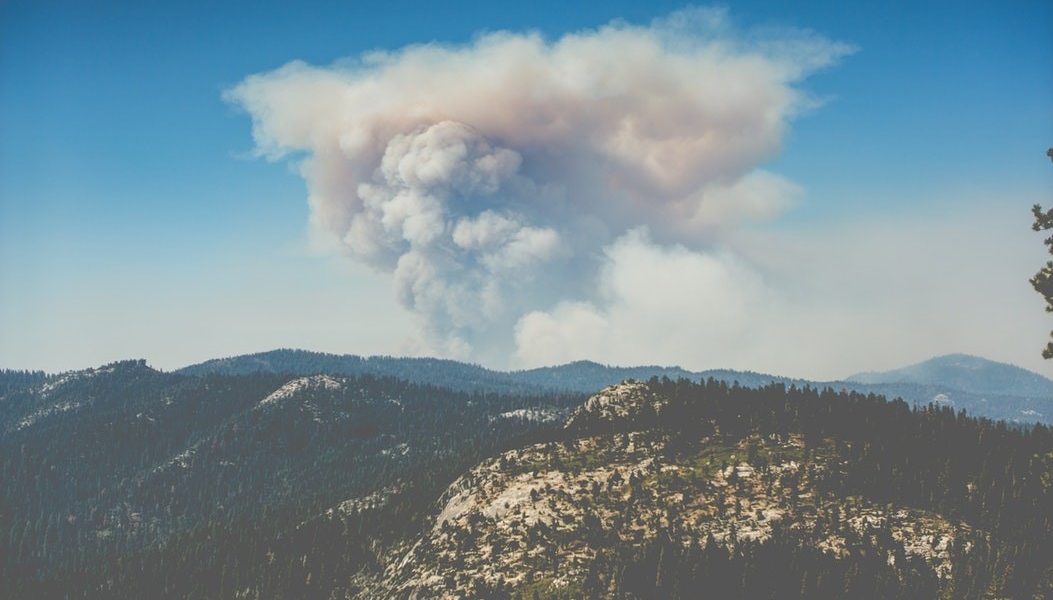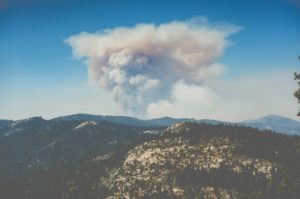As of 2018, in our very own beautiful British Columbia we had a total number of 1,994 wildfires. When calculated in terms of how much land within our province was burned, it totalled to 2,399,650 wildfires, from corner to corner of our province.
In the hot, dry weather months that summer brings along with all its glory, we have more to worry about than just sunburn, and sweat. Wildfires took over B.C this past summer. Whether these fires have begun from a cigarette that a civilian has carelessly thrown on the ground, or from uncontrollable lightning spectacles, we all suffer in the aftermath that these wild fires bring upon us. This year, we experienced the worst wildfire repercussions recorded in B.C to date. With 462 wildfires burning across British Columbia, poor air quality had gradually become worse, as did breathing condition.
What to look out for:
While some people may barely notice the smoke, others may still find themselves struggling to breathe. Just how much you’re affected by the smoke depends on a lot of factors, including age, pre-existing health conditions and the density of smoke in your area.
For people who live near a wildfire, there’s a dangerous possibility to breathe in gaseous chemicals that the fire emits. These include carbon monoxide, methane, acetic acid and formaldehyde. Some major symptoms that were most likely experienced included:
- Chest pain
- Burning pain in the eyes
- Runny nose or inflamed sinuses
- Headache
- Asthma attacks
Symptoms that may seem like allergies, but are results of poor air quality:
During the summer months, when poor air quality is concurrent with the allergy season, we can find it difficult to differentiate between allergies and the impact of poor air quality. Some of the key symptoms you should be paying close attention to are as follows:
- Sore throat
- Eye irritation
- Runny nose
- Mild cough
- Phlegm production
- Wheezy breathing
- Headaches
When to seek immediate medical attention:
Other individuals may experience symptoms that are a tad more extreme than others, especially those with previous health concerns such as heart disease, old age, and asthma. More than 300 million people worldwide are affected by asthma. It is very important you keep an eye out for the following symptoms. If you do happen to experience any of those listed below, you should seek medical attention from a health care professional or call Health Link BC (8-1-1).
- Shortness of breath
- Severe cough
- Dizziness
- Chest pain
- Heart palpitations
Along with all of these irritating symptoms, smoke inhalation has a major negative affect on those with chronic heart and lung diseases as it worsens their respiratory system. Who is at the most risk when it comes to poor air quality conditions?
- People with pre-existing chronic conditions such as asthma, chronic obstructive pulmonary disease (COPD), diabetes, and heart disease
- Women who are pregnant
- Infants and small children
- Elderly
Children are at a major risk during these harsh weather conditions, as they breathe more air per pound of body weight than adults do. They may experience more severe symptoms than adults around them although they are exposed to the same air quality. Anyone at all stages of life can have a negative effect from these harsh conditions, even healthy people! So, listen to your body.
If you have questions about other concerns related to B.C. air quality, follow through to this webpage to find a complete contact list.
Poor air quality affects everyone differently; the depth of concern depends on health conditions and age, as well as how close you are to the wildfire and most importantly, your exposure to it! Take all precautions necessary to ensure your safety during these harsh weather conditions. Also, keep an eye on your local forecast for air quality warnings!
Want to read more about how to prepare for the wildfire season? Follow through to our blog to stay in the loop!
Are you prepared for wildfires? Check out our website here for all our products and services. We sell the best equipment and structures that protect up to four homes against the raging fires in the wilderness.
At SPIEDR™ we are dedicated to protecting structures and supressing wildfires in the most proactive and efficient way! Stay safe and protect your loved ones today with SPIEDR.






